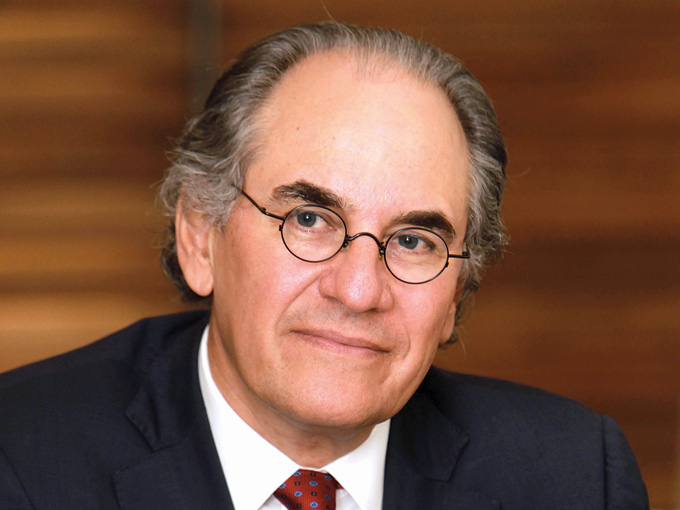By Alfred Stepan and Jeremy Menchik
NEW YORK: The visit by “Barry Obama,” the Indonesian nickname for the former resident and current United States president, to Jakarta is intended, as much as anything, to celebrate the achievements of the largest Muslim-majority country in the world. In the 12 years since its transition to democracy, Indonesia has regularly held local and national elections, developed a functioning free market, and strengthened its culture of tolerance towards the country’s Christian, Hindu, Buddhist, and Chinese minorities.
Of the 10 members of the Association of Southeast Asian Nations, only Indonesia has a “free” rating from Freedom House. The largely Catholic Philippines, Buddhist Thailand, and Confucian Singapore lag behind Indonesia in providing basic democratic rights to their people. American policymakers have therefore looked to Indonesia as a model for the rest of the Muslim world. But what lessons are to be learned from Indonesian democracy?
The most important lesson is that Islamic organizations can provide the backbone of a tolerant civil society. Muhammadiyah and Nahdlatul Ulama (NU), mass Islamic institutions with more than 30 million and 40 million members, respectively, operate more than 10,000 schools and hundreds of hospitals, as well as run youth organizations and support women’s movements. Both have connections to political parties, most of which have consistently spoken out for democracy and against an Islamic state.
Indeed, Syafi’i Ma’arif, the former chair of Muhammadiyah, has made pluralist arguments, grounded in the Quran, against blind obedience to Islamic classical jurisprudence. Abdurrahman Wahid, the former chair of NU, for decades advocated respect for religious pluralism, and was pivotal in mobilizing democratic opposition to the authoritarian leader Suharto. A third Islamic intellectual, Nurcholish Madjid, called for the “de-sacralizing” of politics in the 1970s, advocated genuine multi-party democracy in the 1990’s, and personally urged Suharto to step down in 1998.
Indonesia also demonstrates how Islam can provide support for women’s rights. Among the activist community in Jakarta, the most successful organizations are those that draw support from the women’s wings of Muhammadiyah and NU: Muslimat, Fatayat, and Aisyiyah. The former head of Fatayat, Maria Ulfah Anshor, has made sophisticated arguments grounded in fiqh for women’s access to reproductive rights. And, thanks to a partnership between the state and Islamic scholars stretching back 40 years, Indonesia has one of the most successful family-planning programs in the developing world.
Ironically, the US has done as much to block the efforts of Indonesia’s women’s-rights activists as it has to support them. Former President George W. Bush’s restrictions on funding for health programs that used condoms or other forms of contraception meant that Islamic organizations receiving any funding from the US Agency for International Development were unable to publish material promoting safe-sex and family planning.
This could be, and often was, highly counter-productive. In one particularly absurd case, a group of Muslim feminists who wrote a book promoting women’s rights based on Quranic exegesis had to publish their work in secret, because it included arguments for women’s reproductive rights and a small percentage of the group’s funding came from a foundation that had received money from USAID.
The fact that Islamic organizations have benefited women may also help explain Indonesian women’s political success. The parliament is 18 percent female (a slightly higher percentage than in the US Congress), and a woman, Megawati Sukarnoputri, was the country’s fourth president. Leading organizations like Umar, Fatayat, and Muslimat provide a corrective to the widespread view that Sharia necessarily impedes women.
Indeed, Indonesian women have shown how Sharia can provide a tool for combating misogynist policies. For example, the head of Islamic affairs in the Ministry of Religion, Nasaruddin Umar, is a self-described Islamic feminist who has published sophisticated critiques of gender bias in Quranic exegesis.
Religion permeates almost every aspect of life in Indonesia, including politics. But political parties advocating for implementation of Sharia have lost ground in successive elections from 1955 to 2009. The parties that still support Sharia have largely disappeared or changed their platform. Rather than taking over the state, Islamist parties have been forced by the electorate to alter their policies to account for Indonesian pluralism.
Perhaps the best way to help Muslims is not to attempt to transplant institutions from Indonesia to the Middle East, or to give aid to “American-approved” moderates, but simply to listen more closely to the voices of Indonesian Islam.
But that is difficult to do. Almost none of the writings of the intellectuals who have been crucial to democratization and women’s rights in Indonesia — for example, Abdurrahman Wahid, Nurcholish Madjid, Syafi’i Ma’arif, Siti Musdah Mulia, and Maria Ansor Ulfah — has been translated into English. Perhaps more unfortunately, none has been translated into Arabic.
Alfred Stepan, a professor of political science at Columbia University and the director of its Center for the Study of Democracy, Toleration, and Religion, is a co-author with Juan J. Linz and Yogendra Yadav of Crafting State Nations: India and Other Multinational Democracies. Jeremy Menchik, a Ph.D. candidate at the University of Wisconsin-Madison, has spent the past two years studying Islam and politics in Indonesia. This commentary is published by Daily News Egypt in collaboration with Project Syndicate,
ww.project-syndicate.org.


